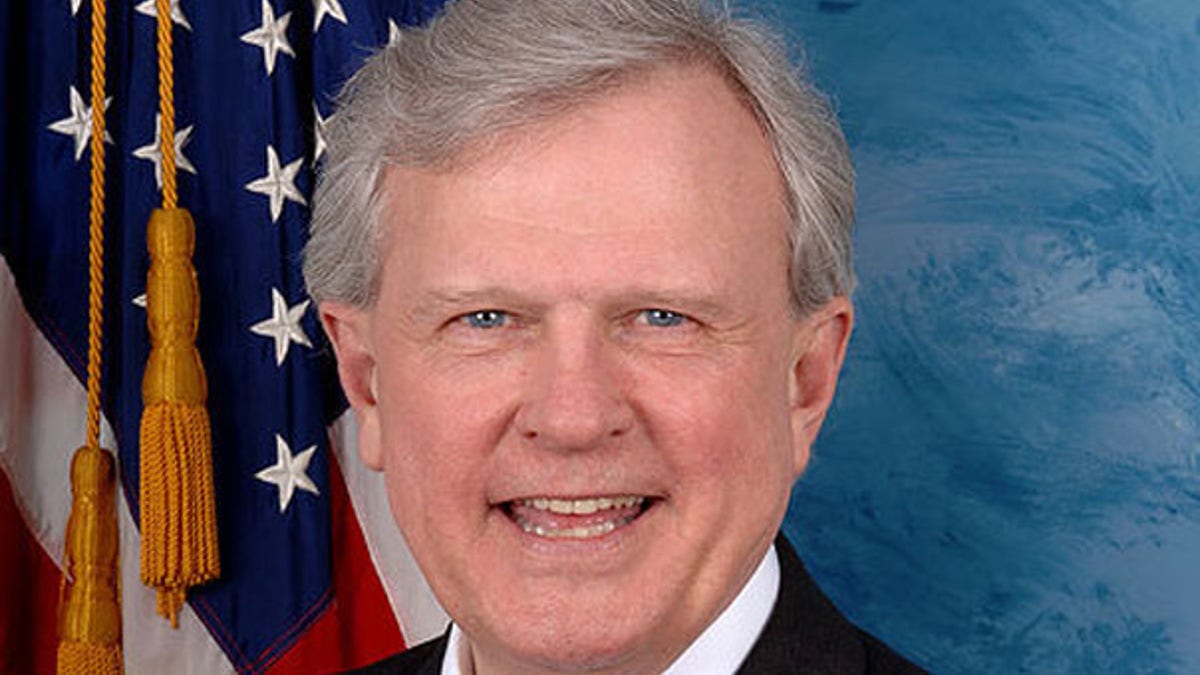
Rep. Parker Griffith of Alabama (House.gov)
Rep. Parker Griffith, a freshman Democrat from Alabama, announced Tuesday that he's switching parties to become a Republican.
"I have become increasingly concerned that the bills and policies pushed by the current Democratic leadership are not good for north Alabama or our nation," Griffith said during a press conference Tuesday.
"I am announcing today that I'm joining the Republican conference immediately," he said. "Our nation is at a crossroads and I can no longer align myself with a party that continues to pursue legislation that is bad for our country, hurts our economy, and drives us further and further into debt."
Griffith, a retired oncologist and businessman, succeeded former Democratic Rep. Bud Cramer, who retired earlier this year, in a hard-fought contest for the northern Alabama seat.
Republicans thought that district would be hard for Democrats to hold without Cramer on the ballot, but Griffith defeated Republican Wayne Parker by 4 points -- 52-48 percent -- even though Republican presidential nominee John McCain won every county in the district.
Former President George W. Bush won the district by double digits in both of his races.
In Congress, Griffith joined the Blue Dogs, the coalition of moderate and conservative Democrats in the House. He voted against the health care reform bill in November.
Democratic Congressional Campaign Committee chairman Chris Van Hollen, blasted the decision, saying the Alabama lawmaker has failed to honor Democrats' "commitment" to him.
"House Democratic Members and the Democratic Congressional Campaign Committee took Parker Griffith at his word and, as a result, invested a great deal in working with Alabamans to bring Mr. Griffith to Congress," Van Hollen said in a statement. "We were committed to helping Mr. Griffith deliver for his constituents and successfully helped Mr. Griffith fend off the personal attacks against him from the far right.
"Mr. Griffith, failing to honor our commitment to him, has a duty and responsibility to return to Democratic members and the DCCC the financial resources that were invested in him," he added. "His constituents will hold him accountable for failing to keep his commitments."
Griffith said he would write a check to voters who wanted a refund.
Earlier this year, Sen. Arlen Specter moved from the Republican Party to the majority Democratic Party but Griffith's party switch from the majority to the minority party is rare.
Florida Rep. Andy Ireland was elected to the House in 1980 as a Democrat when that party held control. But in 1984, Ireland switched to join the GOP and thus serve in the minority. He continued to serve until 1993, when he did not seek re-election to the House. In 1994, Rep. Michael Forbes of New York was elected as a Republican but switched to the minority Democrats in 1999. He did not receive the Democratic nomination in 2000 and lost the seat.
Griffith's thinking may not be a total surprise, however. In August, he told voters at a town hall meeting at the University of North Alabama that if given the chance he would not vote again for Nancy Pelosi as House speaker.
"I would not vote for her. Someone that divisive and that polarizing cannot bring us together," he said.
Republicans in the Alabama delegation met with Griffith the middle of last week and asked him to switch and he agreed. Alabama's two U.S. senators, as well as Rep. Robert Aderholt, whose district borders Griffith's, were instrumental in helping Griffith change his mind. Senior Sen. Richard Shelby is himself a former Democrat who switched parties while in office.
"I believe his voting record and public statements on many important issues demonstrate an approach to government and spending that is incompatible with the national Democratic Party. As a Republican, he will be affirmed in his concerns about reckless spending and governmental overreach, rather than being ostracized for them," said Sen. Jeff Sessions of Alabama.
Rep. Mike Rogers, another Alabama Republican, called the switch "a great development," and likened it to the party switch by Louisiana Rep. Rodney Alexander, who moved from the Democrats to the GOP about six years ago.
"He just could not stomach what the Democrats are doing any longer," Rogers said of Griffith's move.
Griffith's departure means the Democrats will still hold an advantage of 257 seats to the GOP's 178. But the Democratic majority is expected to shrink by at least two seats again in January. Reps. Robert Wexler, D-Fla., and Neil Abercrombie, D-Hawaii, are expected to resign.
Fox News' Carl Cameron contributed to this report.



